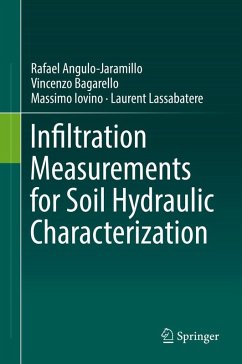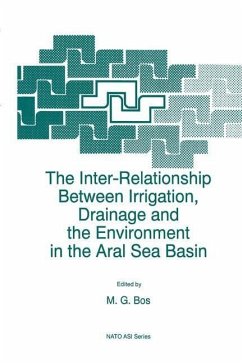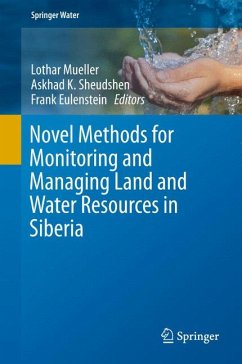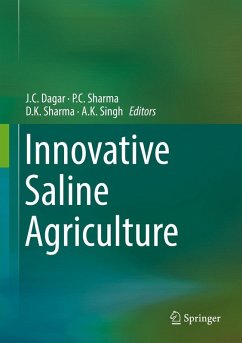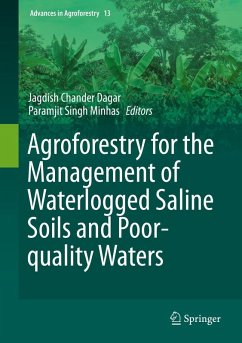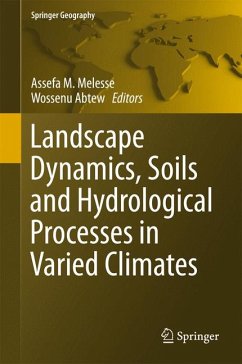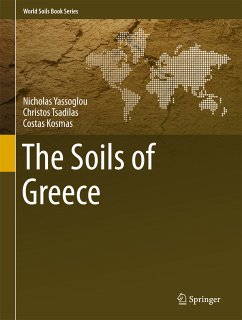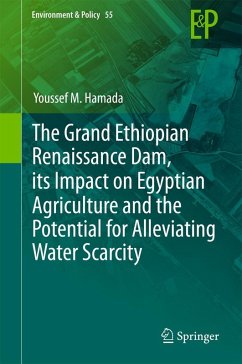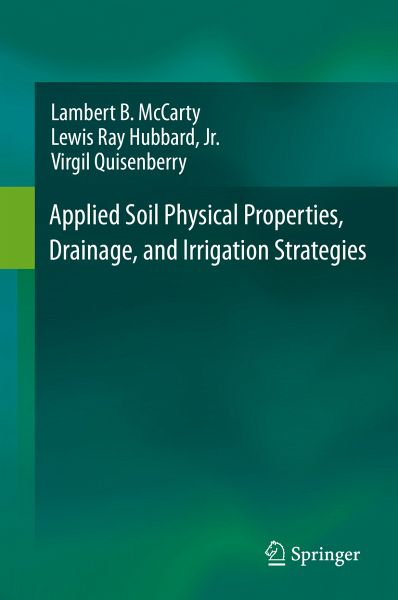
Applied Soil Physical Properties, Drainage, and Irrigation Strategies. (eBook, PDF)
Versandkostenfrei!
Sofort per Download lieferbar
88,95 €
inkl. MwSt.
Weitere Ausgaben:

PAYBACK Punkte
44 °P sammeln!
The book is a realistic blend of basic knowledge and understanding in soil physical properties. It will enable the reader to scientifically analyze soils to develop practical and successful means of providing sufficient drainage and to develop science-based irrigation strategies. Only basic mathematical knowledge is necessary to understand and apply the proven principles covered. With limited resources that are increasing significantly in costs, the book blends the ideal concept of providing sufficient drainage and irrigation based on using soil physical properties but with financial limitatio...
The book is a realistic blend of basic knowledge and understanding in soil physical properties. It will enable the reader to scientifically analyze soils to develop practical and successful means of providing sufficient drainage and to develop science-based irrigation strategies. Only basic mathematical knowledge is necessary to understand and apply the proven principles covered. With limited resources that are increasing significantly in costs, the book blends the ideal concept of providing sufficient drainage and irrigation based on using soil physical properties but with financial limitations in mind. One traditional problem with many Soil Physics, Drainage, and Irrigations-based texts is the prerequisite of understanding complicated calculus-based mathematics. Although necessary for a theory-based text, our text was developed with practitioners in mind where such complicated mathematics was avoided but referenced if the reader wishes to further explore the specific topic. Anotherproblem with many traditional texts is the lack of practical examples or case-studies allowing readers to relate their specific scenarios to similar types of situations. We have purposely included numerous examples and practical field experiences. This is especially true when many of the theoretical ideals are covered, followed by explanations of how such ideals can be applied in the laboratory and field.
Dieser Download kann aus rechtlichen Gründen nur mit Rechnungsadresse in A, B, BG, CY, CZ, D, DK, EW, E, FIN, F, GR, HR, H, IRL, I, LT, L, LR, M, NL, PL, P, R, S, SLO, SK ausgeliefert werden.



